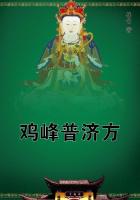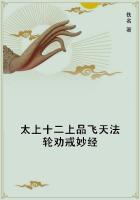H/E was born in Edinburgh in 1757, studied at Glasgow University, went thence to Oxford, where he matriculated in Baliol College.Taking orders in the Church of England in 1784, he received several preferments; such as, a prebendal stall in Salisbury, and the perpetual curacy of Kenley in Shropshire.He married a daughter of John Gregory, and thus became more closely identified with Edinburgh, where he continued usually to reside, and where he discharged the duties of an Episcopal clergyman in the Cowgate chapel from the year 1 down to the time of his death in 1839.He was distinguished for his excessive politeness.He published a volume of sermons, which had the good fortune (or the bad, for the " Edinburgh had never a great reputation as a critic of sermons) to get a laudatory notice in the Edinburgh Review, where they were compared to the "Oraisons Funebres"of Bossuet, and it was said of them: "We do not know any sermons so pleasing or so likely to be popular, and do good to those who are pleased with them.All the feelings are generous and gentle, all the sentiments liberal, and all the general views just and ennobling" But the work which lives is "Essays on the Nature and Principles of Taste," which was published in 1790, but seems to have passed very much out of sight till the booksellers in 1810 told him that there was a wish expressed for the second edition, which was reviewed by Francis Jeffrey in 1811, and afterwards had an extensive circulation in various countries.
The arrangement and manner of the work are admirable.
The style is distinguished by infinite grace, and is worthy of being compared to that of Addison: -- indeed I am not sure if we have a more beautiful specimen of the last-century manner of composition, moulded on the " Spectator,"on the French classics, and the wits of Queen Anne.Every word is appropriate, and is in its appropriate place; and the sentences glide along like a silvery stream.The descriptions of natural scenery, which are very numerous, are singularly felicitous and gracefully: that word <graceful> ever comes up when we would describe his manner.
He does not seem to have had an equal opportunity {309} of studying beauty in the fine arts, in architecture, statuary, and painting, though the allusions to the universally known models of these are always appreciative and discriminating.
Drawing a distinction, very essential in all such inquiries, he would investigate, first, the nature of those qualities that produce the emotions of taste, and then that faculty by which the emotions are received.This distinction, clearly announced, is not thoroughly carried out.In the body of the work, in inquiring into the faculty raising the emotions, he makes the remark, that they are not " the objects of immediate observation," and that they are often obscured under the number of qualities with which they are accidentally combined.He does not seem to have expounded his views as to the faculty.He opposes the theories which have uniformly taken for granted the simplicity of the emotion, and especially those which have made it a sense or senses.He endeavors to show that it has no resemblance to a sense, and that it is finally to be resolved into the more general principles of our constitution.He shows that "it is not, in fact, a ****** but a complex emotion: that it involves in all cases, first, the production of some ****** emotion or the exercise of some moral affection; and, secondly, the consequent excitement of a peculiar exercise of the imagination; that these concomitant effects are distinguishable and very often distinguished in our experience; and that the peculiar pleasure of the beautiful or sublime is only felt when these two effects are conjoined, and the complex emotions produced." In entering on his " Analysis," he proceeds on the philosophic principle, that we should consider the effects before we proceed to determine the cause.So he is to begin with considering the effect produced on the mind when the emotions of beauty or sublimity are felt, and then go on to investigate the causes which are productive of it, or, in other words, the sources of the beautiful and sublime in nature.
(1) "When any object either of sublimity or beauty is presented to the mind, I believe man is conscious of a train of thought being immediately awakened in his imagination analogous to the character or expression of the original object.The ****** perception of the object, we frequently find, is insufficient to excite these emotions, unless it is accompanied with this operation of mind; unless, according to common expression, {310} our imagination is seized and our fancy busied in the pursuit of all those trains of thought which are allied to this character or expression.
Thus, when we feel either the beauty or sublimity of natural scenery, the gay lustre of a morning in spring, or the mild radiance of a summer evening, the savage majesty of a wintry storm, or the wild magnificence of a tempestuous ocean, --we are conscious of a variety of images in our minds very different from those which the objects themselves can.
present to the eye.Trains of pleasing or of solemn thought arise spontaneously within our minds: our hearts swell with emotions of which the objects before us afford no adequate cause." The state of mind most favorable to the emotions of taste is one in which the imagination is free and unembarrassed; and the feeling is not interfered with by any thing which interrupts the flow, is not interfered with in particular by the intrusion of criticism.He shows that the exercise of imagination and the feeling of beauty is increased by association, especially that of resemblance, and enters upon the field which had been so cultivated by Beattie.He remarks very truly how an acquaintance with poetry in our earlier years has a powerful influence in increasing our sensibility to the beauties of nature.















